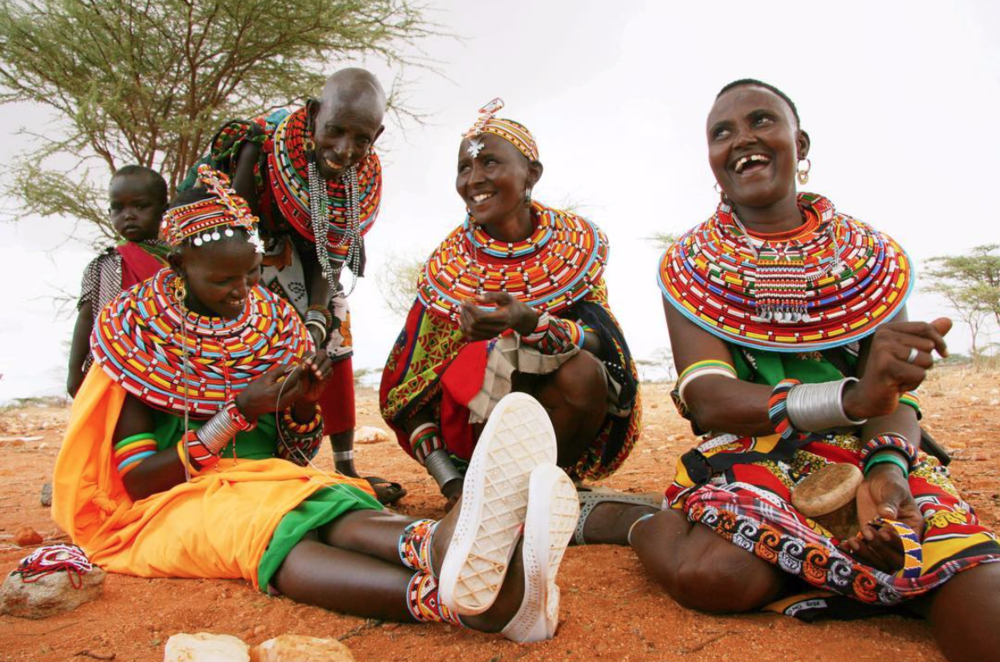
Credit-NRT
When cultural norms hinder your opportunity to get an education, own property, or even make decisions about your own body, the chances of you starting a business are slim.
For women in northern Kenya, this is a reality that perpetuates the poverty cycle, and often prevents them from becoming decision-makers, entrepreneurs and agents of change. This gender-based cultural suppression isn’t just bad for women, it’s bad for men and the economy too.
As community conservancies look for ways to reduce reliance on donor funding, strong governance and business development are key, and that means increasing entrepreneurial opportunities for women.
That is why NRT Trading’s BeadWORKS business aims to provide women’s groups in community conservancies with the means to commercialise their traditional bead craft skills, learn finance and business management, and access loans and savings schemes.
More than 1,000 women in nine conservancies eared over Ksh. 4.7 million (US$ 47,000) in direct income in 2018 from selling beaded jewelry, belts, bags, and decorations to international markets through NRT Trading. This branch of NRT focuses solely on growing sustainable businesses within the conservancies.
Many of the BeadWORKS artisans have never had a paying job, many have no secondary education, and some are completely illiterate.
The majority of the women involved in the business also faced initial resistance from men in their community. “The men thought us women were shunning our traditional responsibilities,” says Seki Lakango, a BeadWORKS member from Westgate Community Conservancy. “But as soon as they saw us go into town and buy nice clothes and food for our families, they asked how their own wives could get involved in what we were doing.”
The momentum from this economic empowerment means women are now increasingly represented on the conservancy boards, and women’s enterprise groups are now enjoying a new legitimacy, giving them, often for the first time, a voice in their community.
While it empowers women, BeadWORKS also plays a critical role in reducing reliance on a volatile livestock market – the main livelihood of north Kenya’s communities. It also aims to provide an alternative to selling charcoal, an illegal but default business for many families in desperate times. Both of these have clear links to the conservation goals of the conservancies to which the women belong, and this is a strong selling point for the beadwork, particularly for international markets.
That is why women’s groups now pay 5% of their total annual business revenue to their respective conservancies.
In the last two years (2017 and 2018) a total of Ksh. 2.5 million (USD 25,000) in proceeds from women’s group annual sales have been disbursed to the community conservancies.
The financial literacy training women can access through the business also makes them eligible for micro-loans, funded through the newly developed NRT Savings and Credit Cooperative Organisation (SACCO).




